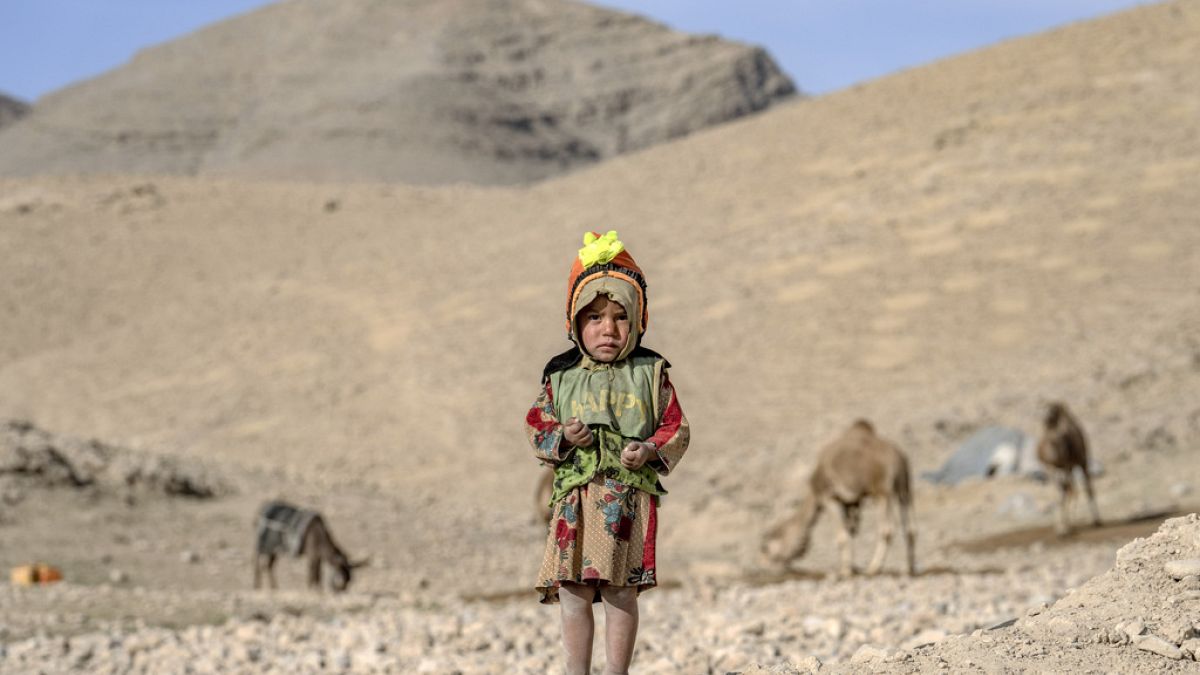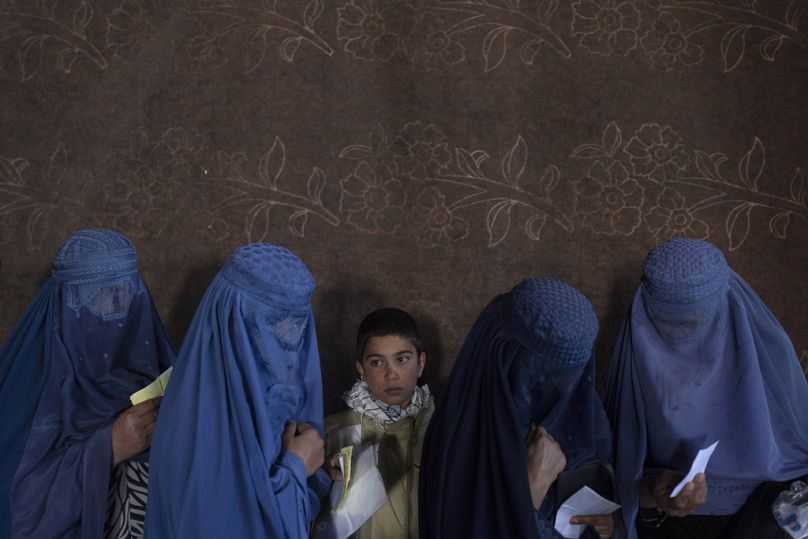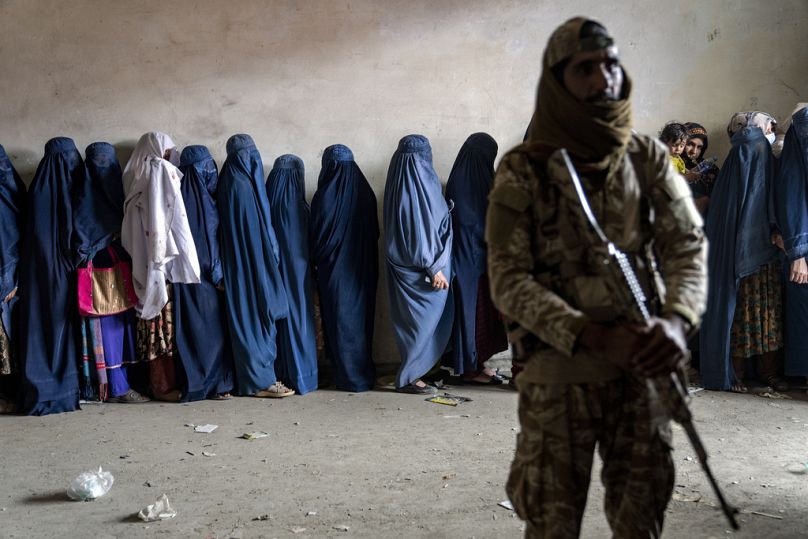Non-governmental humanitarian organisations say that Afghanistan is facing the world's largest humanitarian crisis and call on the international community not to forget the people on the ground.
Just two years after the Taliban came to power in Afghanistan, humanitarian assistance needs across the country have increased dramatically. However, insufficient funding is the biggest obstacle to sustaining and expanding the humanitarian response, putting parts of the population in need of support at risk.
Nearly 29 million Afghans are in need of assistance - IRC
This is the data from the International Rescue Committee (IRC). The non-governmental organisation helps people affected by humanitarian crises, including the climate crisis, to survive, recover and rebuild their lives.
The IRC report on Afghanistan indicates that the country has one of the highest rates of malnutrition in the world, affecting nearly 3.2 million children and 840,000 pregnant and lactating mothers.
Salma Ben Aissa, International Rescue Committee (IRC), told Euronews:"In fact, the need for humanitarian assistance in terms of the number of poor people in need has always existed. And it is continuing now, and it has increased dramatically in the last two years. And we see, as we mentioned in our report, that we are talking about 28.8 million people in need. That's a 60% increase from 2021. This is now the highest level of need in the world."
IRC works in many villages in 12 provinces in Afghanistan and also supports Afghan refugees in neighbouring countries, including those who have resettled in the United States.
Not enough funds to help people on the ground
According to Neil Turner, director of the Norwegian Refugee Council in Afghanistan, funding remains one of the key barriers to administrating aid:
"Many donors have concerns about Afghanistan, and I think my message to them would be that we can act in a principled way in Afghanistan. Obviously, our task as a humanitarian, independent, neutral organisation is solely to deal with the needs of the people. We are in a position to do that. But there are a number of donors who have either cut funding to Afghanistan or are concerned about whether those funds are actually reaching the people who need them. And I would like to say to them: we can work, we can do it, the needs are high, and the aid should flow properly through organisations like the Norwegian Refugee Council."
The situation for women in Afghanistan is getting worse every day
According to a report by UN Women France, Afghanistan is now the most repressive country in the world for women. Today, 13.8 million women and girls need humanitarian assistance to survive in this country.
Some 80% of Afghan girls and young women of school age do not attend educational institutions. High rates of depression and suicide have been reported, especially among adolescent girls who are unable to continue their studies. Experts estimate that keeping girls out of school could cost the economy up to $5.4 billion.
Today, the situation is more than dramatic. The de facto authorities have cut spending on social services by 81% in 2022 and continue to restrict aid.
Human rights experts point out that the systematic denial of Afghan women's rights and freedoms could amount to gender-based persecution, which is a crime against humanity.
Women are victims of sexual, psychological, economic and administrative violence. They are restricted in their freedom of movement. They are not allowed to study or work, including in humanitarian organisations, which undermines relief efforts.
Carlotta Gradin, Vice President of UN Women France, told Euronews:_"Since 4 April 2023, Afghan women have been banned from working with the UN and its agencies in Afghanistan._This has an extraordinarily negative impact because it was women, for the most part, who were the members of the NGOs that came to help people. This means that now the aid is not reaching the population."
UN Women is one of the few agencies left in Afghanistan after the Taliban seized power.
"We have been there for more than ten years, so we have been able to liaise with the civil society associations present on the ground," she added. "And that's why the UN Women regional office didn't want to leave during the takeover of Kabul, but to stay there to help women in extreme distress."
Non-governmental humanitarian organisations say that Afghanistan is facing the largest humanitarian crisis on the planet and ask the world community not to forget the people of Afghanistan.


